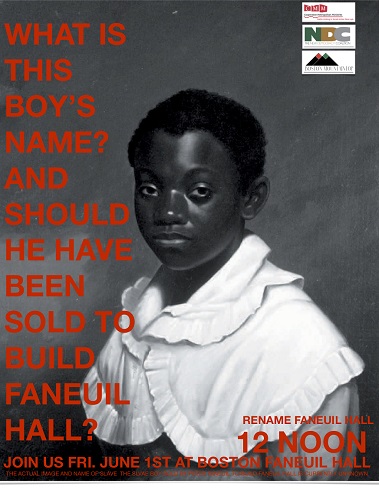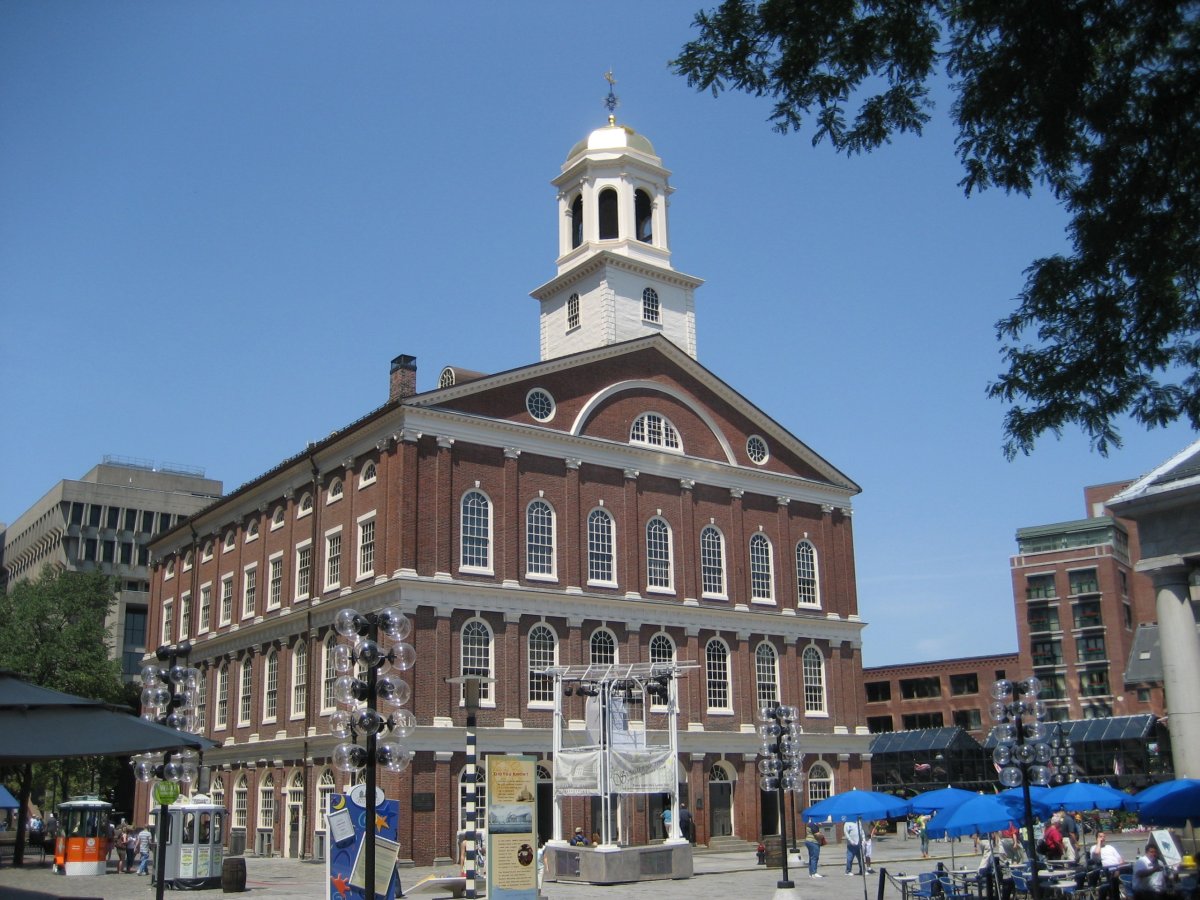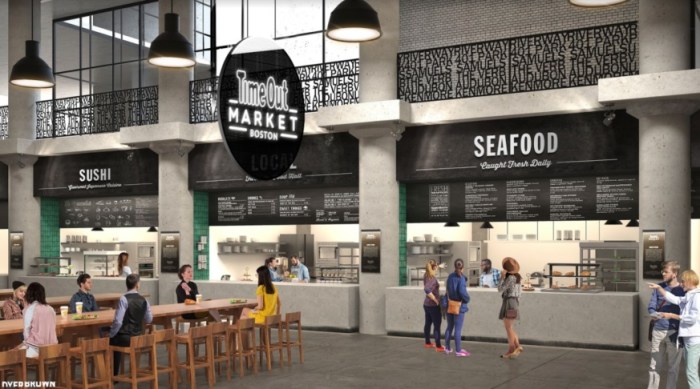Update, 8/01/18: The New Democracy Coalition has scheduled a Faneuil Hall boycott and march for Thursday, Aug. 2.
“Neighborhood activists and members of the faith-based community in Boston will march on Faneuil Hall in Boston Thursday, August 2, in the wake of Mayor Marty Walsh’s refusal to engage black citizens of Boston in discussion around hearing to rename Faneuil Hall,” the group said in a statement on Wednesday.
The activists want to rename Faneuil Hall to Crispus Attucks Hall to “summon deeper conversations about structural racism in Boston a set a foundation for generations to come regarding racial reconciliation.”
Previously, 7/31/18: The New Democracy coalition, the Boston-area group pushing for the city to rename Faneuil Hall because of its ties to slavery, has sent an open letter to Mayor Marty Walsh after calling for a black-led boycott of the landmark.
Kevin Peterson, founder of the New Democracy Coalition, last week called for a boycott in a letter to the Greater Boston Chamber of Commerce. Because his group has not received any response from the city or opportunity to sit with Walsh to discuss renaming Faneuil Hall, he said, his group would stage sit-ins and demonstrations across the city beginning this summer.
Now, Peterson has written an open letter to Walsh “seeking to avert a full-fledge racial showdown in Boston.”
“We boycotters do not desire to protest against our city,” he wrote in the open letter. “Even while we note that the current businesses at Faneuil Hall and the Quincy Market Place are majority white-owned and mostly connected to national and multi-national corporations, our impending protests are not meant to hurt commerce in the city.”
“Yet, we feel compelled to engage in nonviolent civil disobedience for the right to be heard,” he continued, “the right to be respected as black citizens, the right to expect responsiveness from government that shows no shade of intolerance.”
The letter points out the realities of being black in Boston: black male unemployment is disproportionately high, that the black and white divide in terms of net worth is stark, that there are different public education outcomes for whites and blacks here.
“Only through deconstructing icons of the past — not by creating new memorials or refurbishing old Civil War monuments as you have recently begun in the wake of our efforts around Faneuil Hall — can we center on the harsh matter of race that is so ostensibly evident,” Peterson wrote. “Mayor Walsh, you can neither purchase your way out of this problem with your proposed memorial to slavery. Neither can you distract boycotters by your recent pledge to buff up the Shaw memorial.”
Faneuil Hall ties to Slavery

The New Democracy Coalition is calling on officials to rename Faneuil Hall because of the landmark’s ties to slavery. Peter Faneuil, for whom the area is named, was a Boston merchant, slave trader and slave owner.
Peter Faneuil donated money to the city in order to fund the creation of Faneuil Hall. That money came in part from selling slaves.
When asked for a response to the New Democracy Coalition latest letter, the city pointed to Walsh’s previous statement on the issue of renaming Faneuil Hall. The city did not say if there were any plans to meet with the New Democracy Coalition.
“If we were to change the name of Faneuil Hall today, 30 years from now, no one would know why we did it,” Walsh previously said. “Not many people know about the history of that man. And over the years, Faneuil Hall has become a place where good things have happened: historic speeches such as Frederick Douglass’ call for the end to slavery, the signing of forward thinking legislation like the affordable care act, and where hundreds of people take their oath of citizenship every year. What we should do instead, is figure out a way to acknowledge the history so people understand it. We can’t erase history, but we can learn from it.”



















